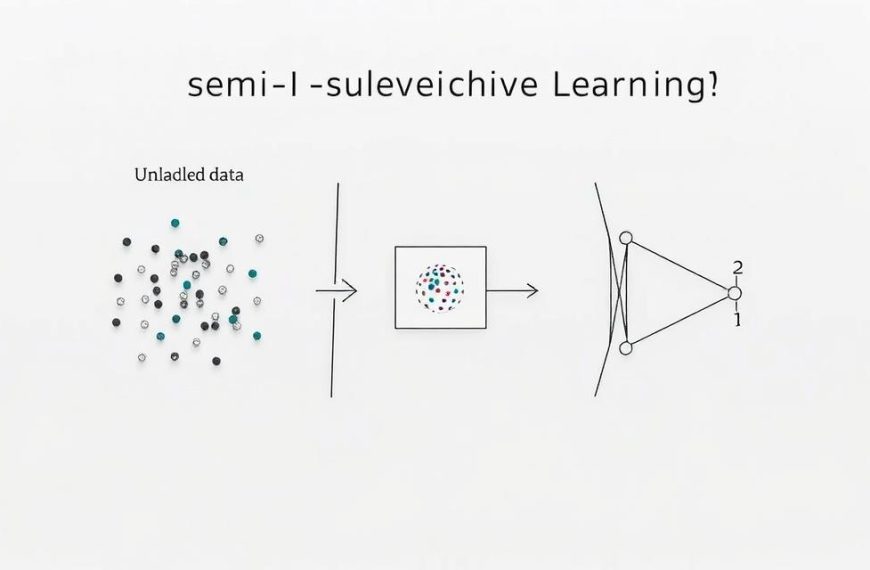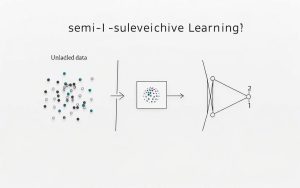Organisations across the UK are racing to harness intelligent systems that learn, adapt, and evolve. This technological revolution, powered by advanced algorithms, creates unprecedented opportunities for specialists shaping tomorrow’s innovations. With 47% of British enterprises prioritising AI development, expertise in this field has become the golden ticket to future-proof careers.
The discipline focuses on training systems to improve autonomously through data patterns rather than rigid programming. From Netflix’s uncanny recommendations to Tesla’s self-driving networks, these applications demonstrate why 40% industry growth is forecast by 2027. Tech giants and startups alike compete fiercely for talent capable of turning raw data into strategic assets.
Career paths now span far beyond coding labs. Businesses seek professionals who blend technical mastery with commercial insight – whether optimising supply chains through predictive analytics or developing ethical frameworks for AI deployment. Salaries reflect this demand, with UK machine learning specialists earning £65,000-£120,000 annually across finance, healthcare, and retail sectors.
This guide explores the skills and qualifications needed to thrive in roles ranging from neural network engineering to AI product management. We’ll analyse how emerging technologies create new niches while traditional industries undergo data-driven transformations. For those ready to adapt, the professional landscape offers limitless potential.
Introduction: Setting the Stage for Machine Learning Careers
Businesses are increasingly relying on intelligent algorithms to stay competitive in a fast-paced digital economy. Over 60% of UK firms now use predictive analytics to streamline operations, reflecting a seismic shift in how industries leverage data. This transformation creates career opportunities for professionals who bridge technical expertise with real-world problem-solving.
- Explosive growth in data generation (2.5 quintillion bytes daily)
- Cloud platforms enabling scalable model deployment
- Regulatory pushes for AI transparency in sectors like finance
The industry now views machine learning not as optional, but as critical infrastructure. Retail giants analyse shopping patterns in real-time, while NHS trusts predict patient admission rates with 89% accuracy. This widespread adoption explains why 73% of UK tech leaders report difficulties finding qualified candidates.
Salaries reflect this imbalance, with entry-level roles starting at £48,000 – 65% above the national average. Beyond financial rewards, specialists shape innovations impacting education, climate modelling, and cybersecurity. As one Google DeepMind engineer notes: “We’re not just coding algorithms – we’re redefining how society functions.”
What are machine learning jobs?

At the heart of digital innovation lie roles dedicated to building intelligent, self-optimising tools. These specialists design algorithms that process vast datasets, uncovering hidden patterns without human intervention. Unlike conventional programming, where outcomes follow strict rules, these adaptive systems refine their logic through continuous exposure to new information.
Key applications demonstrate this approach’s transformative power:
- Personalised media suggestions in streaming platforms
- Real-time fraud detection for financial institutions
- Self-adjusting pricing engines in e-commerce
The work revolves around an iterative cycle: collecting quality data, training predictive models, and refining outputs through validation. Professionals in this field combine statistical expertise with coding prowess to create solutions that outperform static software. As one Barclays AI lead explains: “Our fraud detection models now flag suspicious transactions 40% faster than manual reviews.”
| Traditional Roles | ML Specialists |
|---|---|
| Fixed programming logic | Self-improving algorithms |
| Manual data analysis | Automated pattern detection |
| Deterministic outputs | Probabilistic predictions |
Success requires balancing technical skills with sector-specific knowledge. Retail specialists might optimise inventory systems using sales trends, while healthcare experts develop diagnostic tools from medical imaging archives. This fusion of disciplines makes the field both challenging and rewarding for data-driven problem solvers.
Machine Learning Engineer: Role and Requirements
Industries undergoing digital transformation increasingly depend on specialists who convert data science concepts into functional tools. These professionals deploy models that power everything from fraud detection systems to personalised healthcare diagnostics, earning average salaries of £65,000 in the UK.
Key Responsibilities
Machine learning engineers operationalise theoretical frameworks, ensuring algorithms perform reliably under real-world conditions. Their daily tasks include:
- Architecting neural networks for specific use cases
- Optimising training pipelines for cloud deployment
- Collaborating with data teams to refine input datasets
| Academic Foundations | Industry Requirements |
|---|---|
| Computer Science degrees | Python/C++ proficiency |
| Statistical theory | TensorFlow/PyTorch expertise |
| Linear algebra | AWS/Azure deployment skills |
Essential Skills
Success in this role demands balancing technical skills with sector-specific knowledge. Retail specialists might enhance recommendation models, while transport engineers refine autonomous vehicle navigation systems.
Core competencies include:
- Advanced programming capabilities
- Model validation techniques
- Cross-functional team coordination
| Region | Average Salary |
|---|---|
| United Kingdom | £65,000 |
| United States | $135,499 |
Data Scientist: Analysing & Predicting Trends
In an era where 90% of the world’s data emerged in the last two years, professionals who decode this information goldmine command premium value. Data scientists serve as strategic navigators, transforming chaotic datasets into roadmaps for business innovation. Their work powers decisions from NHS resource allocation to high-street retail inventory optimisation.

Core Competencies
These analytical experts master a triad of skills:
- Data wrangling: Cleaning disparate sources into usable formats
- Statistical modelling: Building predictive algorithms with Python/R
- Visual storytelling: Communicating insights through tools like PowerBI
A Barclays analytics lead notes: “Our team’s churn prediction models reduced customer attrition by 18% last quarter – that’s the power of quality analysis.”
Salary Insights & Career Prospects
UK salaries reflect growing demand:
| Experience Level | Average Salary |
|---|---|
| Entry-Level | £32,000 – £42,000 |
| ML Specialists | £48,000 – £52,000 |
Career trajectories often progress from junior roles to positions like Chief Data Scientist within 5-7 years. Sector-specific expertise in finance or healthcare typically boosts earning potential by 20-35%.
Natural Language Processing Engineer: Interpreting Human Language
Digital communication undergoes radical transformation through systems that decode linguistic patterns with human-like precision. Specialists in this field design tools enabling chatbots to resolve banking queries and algorithms that detect hate speech across social platforms. Their work bridges the gap between technical systems and nuanced human expression.
Technical Proficiencies
NLP engineers combine computational theory with linguistic analysis to solve real-world challenges. Core competencies include:
- Mastery of Python frameworks like spaCy for text classification
- Advanced techniques in transformer model architecture
- Semantic analysis using BERT and GPT variants
| Traditional Analysis | NLP Approach |
|---|---|
| Keyword matching | Contextual understanding |
| Manual sentiment scoring | Emotion detection algorithms |
| Rule-based translations | Neural machine translation |
Industry Demand
Global spending on language processing solutions will triple by 2028, reaching £74 billion. UK firms particularly seek talent for:
- Developing voice-controlled healthcare diagnostics
- Automating legal document analysis
- Enhancing multilingual customer support systems
Salaries reflect this urgency, with experienced engineers commanding £68,000+ in London’s fintech sector. As one NHS AI lead observes: “Our triage chatbots now handle 40% of initial patient interactions – that’s the power of robust NLP systems.”
Software Engineers Specialising in Machine Learning
Modern software development now intersects with intelligent systems engineering, creating hybrid roles that demand expertise in both traditional coding and adaptive algorithms. These professionals architect frameworks that embed predictive capabilities into existing infrastructure, earning average salaries of £70,000 in the UK.

Programming Languages
Mastery of multiple languages enables seamless integration of ML components into production environments. Core tools include:
- Python for rapid prototyping with TensorFlow
- Java for enterprise-scale system integration
- C++ for latency-sensitive applications like fraud detection
| Language | ML Application | Industry Use |
|---|---|---|
| Python | Model training | 82% of startups |
| Java | API development | Banking systems |
| C++ | Real-time inference | Autonomous vehicles |
Project Experience
Practical development experience proves more valuable than certifications. Recruiters prioritise candidates who’ve delivered:
- MLOps pipelines reducing deployment times by 40%
- Monitoring systems detecting model drift in production
- Scalable APIs serving 10,000+ predictions hourly
As highlighted in industry career guides, successful practitioners combine software architecture skills with statistical intuition. One fintech lead notes: “Our ML-specialised engineers reduced payment processing errors by 63% through better model-container integration.”
| Traditional Focus | ML Specialisation |
|---|---|
| Code structure | Model integration |
| Deterministic outputs | Probabilistic monitoring |
| Static systems | Self-updating pipelines |
AI Engineer and Deep Learning Opportunities
Artificial intelligence now drives strategic decisions from boardrooms to factory floors. Specialists in this field architect systems that evolve through experience, with UK firms investing £3.4 billion annually in intelligent solutions. These professionals don’t just build tools – they redefine how organisations operate.

Model Development Techniques
Deep learning engineers craft neural networks mimicking human cognition. Popular architectures include:
- Convolutional networks analysing medical scans with 94% accuracy
- Transformer models processing multilingual customer queries
- Recurrent systems predicting equipment failures in manufacturing
| Traditional Models | Deep Learning Approach |
|---|---|
| Manual feature selection | Automatic pattern discovery |
| Linear processing | Hierarchical data interpretation |
| Limited scalability | Distributed cloud training |
AI Integration Strategies
Deploying intelligent systems requires balancing technical prowess with commercial awareness. Successful learning engineers coordinate with legal teams on GDPR compliance while optimising TensorFlow models for edge devices.
| Tactic | Impact |
|---|---|
| Containerised deployment | 63% faster model updates |
| Ethical AI frameworks | 38% higher user trust |
| Cross-department training | 5x adoption rates |
As one HSBC innovation lead notes: “Our deep learning fraud detection now processes £19 billion monthly with 0.01% false positives – that’s strategic AI integration.” Salaries reflect this expertise, reaching £78,000 for engineers spearheading NHS diagnostic systems.
Business Intelligence and Data Analyst Roles in ML
Traditional data roles are undergoing a radical evolution as machine learning reshapes decision-making processes. Analysts now collaborate closely with technical teams to transform raw information into strategic assets. In the UK, professionals blending these skills command salaries 22% above conventional roles – £40,000 for data specialists rising to £56,000 for BI developers.
Analytical Techniques
Modern business intelligence extends beyond spreadsheets. Specialists design interactive dashboards that highlight trends in customer behaviour or supply chain inefficiencies. One retail firm achieved 31% faster stock replenishment by integrating predictive analytics into their reporting tools.
These roles demand expertise in visual storytelling. Effective insights presentation helps companies act swiftly on algorithmic predictions. For instance, financial institutions now use real-time data visualisations to adjust lending strategies within hours rather than weeks.
The fusion of technical and commercial skills proves critical. As one NHS BI lead notes: “Our teams don’t just report numbers – they shape life-saving resource allocation decisions.” This shift positions analytical roles as central to organisational strategy across UK industries.











